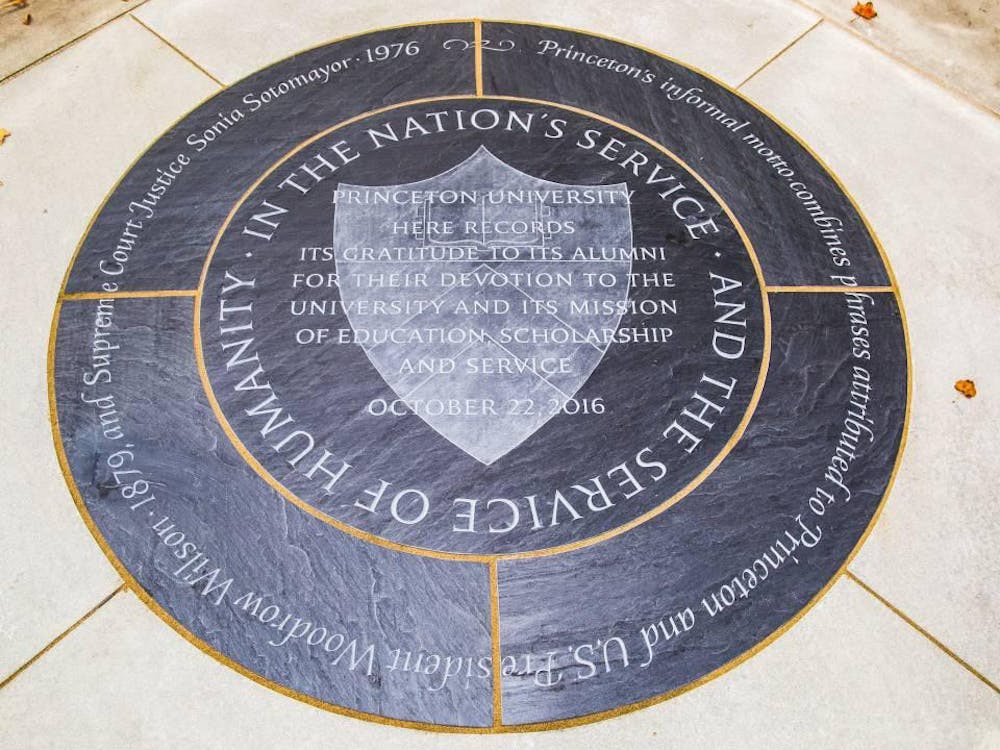For all of our alleged dedication to high-minded, intellectual pursuits, Princeton sends remarkably few of its undergraduates to pursue higher degrees in academia. And it isn’t because we can’t; doctorate programs around the country would absolutely love to add Princetonians to their rosters, especially considering the strong emphasis Princeton places on independent research. We simply choose not to.
Keep in mind that when I refer to “graduate school” I mean institutions that award master’s — M.S. and M.A. — degrees and doctorate — Ph.D. — degrees in science or art. I am not considering professional schools such as law, business or medical schools or the degrees that you earn like J.D.s, MBAs or M.D.s.
This reality is nothing new: Princetonians have been skirting academia for generations. A quick survey of faculty curricula vitae at any major research institution reveals a relative lack of “Princeton University” in the bachelor degree section. When I ask my peers why they don’t want to go to graduate school, I get a host of different explanations: “I want to get some ‘real-world’ work experience”; “I don’t know if I want do any more research for a while”; “I want to get out and make some money”; “I don’t know exactly what I’d want to do in grad school”; the list goes on.
While all of these explanations make sense, none of them is unique to Princeton. College students at any number of institutions across the country could make similar claims. Nevertheless, our peer institutions — Harvard, Yale, Stanford and Brown in particular — churn out future professors and researchers in vastly greater quantities, relative populations considered. What is it about Princeton that turns people away from the idea of advanced degrees in academia?
It all comes down to two unique aspects of our campus culture: the precedent set by alumni and our exceptional social awareness.
As freshmen, we have little to no idea of what we actually want to do after college. Our lives and energies thus far have been focused on the singular goal of university admission. With that challenge behind us, we are faced with an intimidating and significantly more open-ended choice. Being social creatures easily inspired by role models, we look to upperclassmen and recent alumni for guidance. Princetonians have an incredible, almost cultish alumni network, the likes of which is rarely seen elsewhere. Because Princeton has always had a strong history of sending students into the financial sector, current students continue to flock to entry-level positions in firms, positions that typically do not require advanced degrees. Either this, or Princetonians gain admission into competitive law and medical schools before entering practice. This alumni precedent creates a self-perpetuating cycle that draws undergraduates away from more academic pursuits.
Perhaps the more interesting aspect of campus culture leading to our graduate school yield is our social awareness and comparison. Princeton, more than its peer institutions, fosters a close and distinctive community. Institutional mainstays like mandatory independent work and eating clubs create common experiences for undergraduates that can prove defining in their sojourn at the University. These common points, in addition to the fact that 98 percent of undergraduates are housed on campus for all four years of their time here, make for an intensely intimate campus consciousness.
This mutual consciousness naturally leads to some social comparison; we are human after all. And money and prestige are core tenets of social comparison. Working straight out of college, especially coming from an institution as renowned as Princeton, can lead to a good deal more money and prestige than most graduate students experience. Princeton students may feel as though they have somehow “failed” if they continue on as a starving student in pursuit of an advanced degree when their peers, with whom they are so closely associated, begin working or seeking a professional degree immediately after graduation. This phenomenon could be responsible for graduating seniors’ reluctance to continue on with their academic education.
Irrespective of the psychology underlying Princetonians’ aversion to the realms of academia, we do our communities and ourselves a disservice in avoiding post-graduate study. Princeton students are among the most intellectually sharp and industrious young people in America and around the world. It is regrettable that we deprive the academic world of this kind of firepower by funneling our energies into private enterprise.
I am not advocating that graduating seniors forsake the common paths blazed by the generations of Princetonians preceding them; I am rather questioning whether we limit ourselves by our understanding of what a successful post-graduate outcome is. Princeton undergraduates have the opportunity to achieve eminent roles in the scholarly world, an opportunity that they should not neglect.
Nathan Mathabane is a geosciences major from Portland, Ore. He can be reached at nmathaba@princeton.edu.








